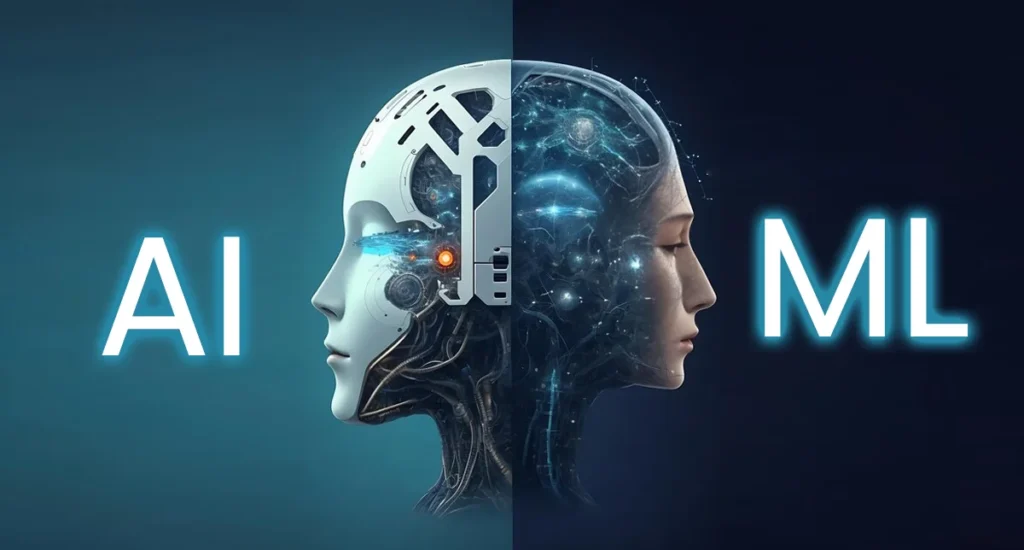In 2024, the adoption of artificial intelligence (AI) surged across global businesses, as companies from diverse sectors raced to integrate machine learning and AI-driven technologies into their operations. This rapid uptake was fueled by advancements in AI capabilities, such as natural language processing, generative AI, and deep learning, which have enabled organizations to enhance productivity, streamline operations, and improve customer experiences. With AI continuing to transform industries like finance, healthcare, manufacturing, and retail, companies are increasingly recognizing AI as a critical tool for staying competitive in the modern marketplace.
Driving Factors Behind AI’s Rapid Adoption
One of the key drivers behind the surge in AI adoption has been the growing accessibility and affordability of AI technologies. Cloud computing platforms such as Microsoft Azure, Google Cloud, and Amazon Web Services have made it easier for businesses of all sizes to deploy AI solutions without the need for significant upfront investments in infrastructure. These platforms offer a wide range of AI-powered services, from data analytics to machine learning models, which can be customized to meet the specific needs of organizations.
In addition, advancements in AI tools and frameworks have simplified the development and deployment of AI applications. Companies no longer need to rely on highly specialized AI experts to build and maintain their AI systems; instead, they can leverage pre-built models and user-friendly interfaces to incorporate AI into their workflows. This democratization of AI has opened the door for small and medium-sized enterprises (SMEs) to join larger corporations in adopting AI technologies.
Applications Across Key Industries
The impact of AI is being felt across a wide range of industries, with many organizations using AI to optimize their operations, enhance decision-making, and deliver personalized experiences to customers. In the financial services sector, for example, AI-driven algorithms are being used to detect fraudulent transactions, assess credit risk, and automate routine tasks such as loan processing. By reducing the need for human intervention in these areas, financial institutions are able to operate more efficiently and with greater accuracy.
In healthcare, AI is revolutionizing diagnostics, drug discovery, and patient care. Machine learning algorithms are helping doctors analyze medical images more quickly and accurately, while AI-powered chatbots and virtual assistants are improving patient engagement and reducing the burden on healthcare professionals. The development of AI-driven predictive models is also helping pharmaceutical companies accelerate the process of drug development, potentially leading to faster approval of new treatments.
The manufacturing industry is benefiting from AI’s ability to enhance production processes through predictive maintenance, quality control, and supply chain optimization. By using AI to monitor equipment and detect anomalies in real time, manufacturers can minimize downtime and reduce operational costs. Similarly, AI-driven robots are being used to automate repetitive tasks on the factory floor, freeing up human workers for more complex and creative roles.
In the retail sector, AI is being used to personalize the shopping experience for customers through advanced recommendation engines and targeted marketing campaigns. Retailers are also leveraging AI to improve inventory management, optimize pricing strategies, and streamline supply chain operations. As consumers increasingly turn to online shopping, AI-powered chatbots and virtual assistants are playing a key role in providing customer support and handling inquiries.
Challenges and Ethical Considerations
Despite the many benefits of AI, its rapid adoption has raised important ethical concerns, particularly around issues such as privacy, bias, and job displacement. The use of AI in decision-making processes—such as hiring, lending, and law enforcement—has drawn scrutiny over the potential for algorithmic bias and discrimination. Additionally, the growing reliance on AI for data processing has sparked concerns about data privacy and the potential misuse of personal information.
There are also concerns about the impact of AI on the labor market, as automation continues to replace jobs that were once performed by humans. While AI has the potential to create new job opportunities in fields such as AI development, data science, and robotics, it is also likely to displace workers in industries such as manufacturing, logistics, and customer service. Policymakers and business leaders are increasingly focused on developing strategies to ensure that workers are equipped with the skills needed to thrive in an AI-driven economy.
Future Outlook
Looking ahead, the adoption of AI is expected to accelerate further as organizations continue to realize the value of AI-driven technologies. According to industry forecasts, global spending on AI is projected to reach $500 billion by 2025, driven by investments in AI research, development, and deployment. As AI capabilities continue to evolve, companies that embrace AI will be better positioned to innovate, optimize their operations, and deliver superior products and services to their customers.
However, the widespread adoption of AI will also require businesses to address the ethical, legal, and social implications of AI use. Companies will need to establish clear guidelines for the responsible deployment of AI and invest in training programs to ensure that their workforce is prepared for the changes brought about by AI technologies. By doing so, businesses can harness the full potential of AI while minimizing its risks and ensuring that the benefits of AI are shared equitably across society.
From Our Editorial Team
Our Editorial team comprises of over 15 highly motivated bunch of individuals, who work tirelessly to get the most sought after curated content for our subscribers.


